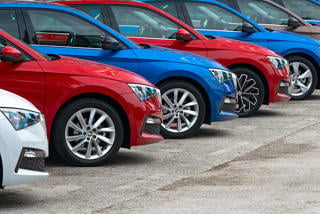HM Revenue and Customs (HMRC) has successfully overturned a first tier tribunal decision from August 2010 that business motoring allowances paid to staff were exempt from National Insurance Contributions (NIC).
The tribunal decided that the in order for the payments to be exempt from NIC they had to be more closely related to business miles driven than was the case.
The upper tribunal judge Colin Bishopp said the first tier tribunal reached its finding after asking itself the wrong question, or an inadequate question, and the answer given was based on an error of law.
Total People – now Cheshire Employer and Skills Development - paid a minority of employees a mileage allowance of 40p per mile, but the majority – 160 employees, who travelled at least 2,500 miles per annum - received a reduced mileage allowance of between 12-13p per mile, with an additional annual lump sum payment of between £3,600 and £3,700.
Total People had paid NIC on the allowance and had not taken account of the 28/27p per mile remaining from the 40p per mile NIC free limit.
HMRC took the view the lump sum was simply a payment of cash earnings for NIC purposes and, as such, NI was due on the payments made.
However, Total People disagreed suggesting the lump sum was actually part reimbursement of the motoring costs incurred in using the car for business and should be treated as relevant motoring expenditure and therefore not subject to NIC.
It argued that its rationale for structuring the payments in this way was that a 40p per mile structure “risked encouraging staff to maximise their travel so as to maximise their profit”.
Total People claimed it had overpaid £146,165 in NI for the four years ending April 5, 2003, to 2006, with employers able to submit a reclaim for the previous six tax years.
The first tier tribunal ruled in favour of Total People with the tribunal judge Richard Barlow saying that “the most important single piece of evidence is the absence of a link between the increase in salary and the increase in motoring allowances. The appellant’s rationale for structuring the payments as it did is also significant.”
However, following HMRC’s appeal to the upper tier tribunal, Bishopp has decided that the payments were not of relevant motoring expenditure because they were not paid by reference to, or with regard to, the use by the employees of their cars on employer’s business.
See next week’s Fleet News for further analysis and comment.























PremierBlue - 24/08/2011 11:03
Common sense prevails! Can you imagine the chaos that would have resulted if the original decision had been upheld? Some drivers would have claimed MAR on the difference, and the link between AMAPs and actual business mileage would have been severed forever! Nonetheless, HMRC still need to find a way of reconciling the different NICs treatment for RME and AMAPs, even if that means aligning RME to the same mileage limits. The current situation where business mileage payments over 10,000 business miles attract NICs at 26p for AMAPs and 41p for RME is ludicrous.